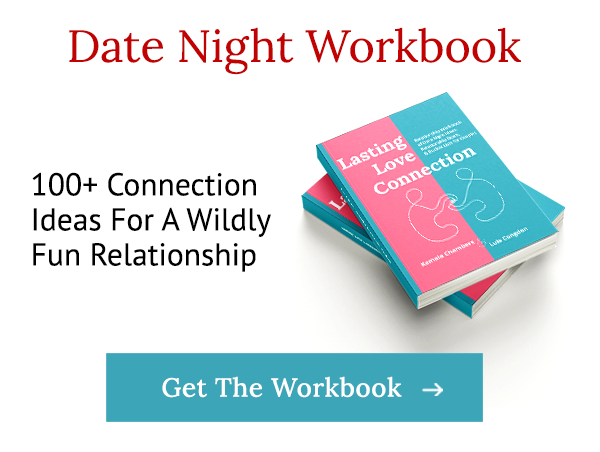What is the worst thing a husband can say to his wife?
It is often said that actions speak louder than words. But words can cut deep.
The harsh words weaponized against us can replay in our heads and feel impossible to forget.
And the worst thing anyone can say is often quite specific to the wounds, pains, secrets, and vulnerabilities we’ve shared.
Thankfully, it is possible to heal past hurt, rebuild broken trust, and cultivate a loving relationship.
Table of Contents
What is the worst thing a husband can say to his wife?

It is easy to get caught up in our emotions in the heat of the moment.
During an argument or moment of frustration, maybe your partner hurt you deeply.
Maybe it’s not even something they truly mean.
They may immediately apologize or try to take it back.
However, once the words come out, they can’t be unheard.
Words exchanged in a few seconds can lead to lingering pain for weeks or years.
If you are wondering about the worst thing a husband can say to his wife, it isn’t the same for everyone.
Each woman will likely have a different answer to this question based on their unique experiences, wounds, and insecurities.
60+ of the worst things a husband can say to his wife
While this list is in no way all-inclusive, these are some of the worst things a husband can say to his wife:
- “You’re not good enough as a wife or a mother.”
- “I’m not attracted to you anymore.”
- “You’re just like your mother/sister/aunt.”
- “I wish I had never married you.”
- “You’re too fat/thin/short/tall.”
- “Our sex life is terrible.”
- “Stop bothering me.”
- “You’re lazy/stupid/useless.”
- “Nobody else would put up with you.”
- “You’re not the woman I married.”
- “I’m not sure I love you anymore.”
- “You’re never happy.”
- “What’s wrong with you?”
- “You’re a terrible wife.”
- “I hate waking up next to you.”
- “My ex-girlfriend/ex-wife is hotter than you.”
“I know you’re lying to me, so I’ll just keep my own secrets.”
- “Can’t you take a joke?”
- “Why can’t you be more like (name of another woman)?”
- “I wish I married my high school sweetheart instead.”
- “Calm down.”
- “Stop being so emotional.”
- “Fine, do whatever you want. It doesn’t matter anyway.”
- “Whatever, I don’t care.”
- “I’m not in the mood.”
- “You’re always working. You never spend any time with me/the kids.”
- “Ugh, you’re so annoying.”
- “I hate you.”
- “I don’t need you in my life.”
- “You’re too clingy/needy.”
- “It’s your fault.”
- “You’re why I’m drinking/smoking/using drugs.”
- “I don’t love you anymore.”
- “Stop nagging me.”
- “You’re a worthless excuse for a woman and a wife.”
- “Your mother/family is a pain/annoying/the worst.”
- “You’re never there for me when I need you.”
- “You are not a good person.”
“You bring out the worst in me.”
- “Our life sucks. This relationship is my worst nightmare.”
- “I’d be better off without you in my life.”
- “I’m not good enough for you.”
- “You are the worst thing that ever happened to me.”
- “You have ruined my life.”
- “My mother/best friend was right about you – we shouldn’t have gotten together.”
- “If it weren’t for the kids, I would have left you long ago.”
- “My best friend thinks you’re such a jerk/crazy/bitchy/etc…”
- “You’re a bad mom.”
- “Why did I choose to spend my entire life with you?”
“I wish you looked more like other women.”
- “My life would be much better if we weren’t married.”
- “All you do is stuff around the house. You need to get a real job.”
- “Let’s a divorce. See if I care.”
- “If YOU loved ME, then YOU would do what I want.”
- “Why even try? You’re just going to fail.”
- “If you were like any other woman, you’d know what I was talking about.”
- “That’s the stupidest thing I’ve ever heard.”
- “I’m a better person than you are.”
- “You’re like a bad omen. Everything you do brings us bad luck.”
- “Stop making such a big deal out of everything.”
- “The kids deserve a better mom/mother.”
- “The kids love me more than they love you.”
- “Even your kids hate you.”
These statements are deeply hurtful, especially coming from someone you’ve thought of as your favorite person and life partner.
If your husband says one of these harmful statements, it doesn’t mean your relationship is doomed.
However, repairing the damage often takes time and intentionality.
What husbands should not say to their wives – The worst thing a husband can say to his wife

Each woman likely has a different opinion on the worst thing a husband can say to his wife.
In addition to blatantly cruel remarks, a husband may hurt his wife unintentionally. For example, many women report getting upset when a husband tells her to, ‘calm down’ or ‘just relax.’
A husband may not mean to offend his wife, yet still end up saying something insensitive and damaging to the relationship.
Even with good intentions, husbands unknowingly make remarks that their wives find hurtful or dismissive.
Here are a few of the some of the most common and worst things a husband can say to his wife:
“You’re overreacting.”
Telling a woman she’s overreacting invalidates her feelings.
Instead of encouraging her to express herself fully, this statement immediately shuts her down and makes her feel like her emotions don’t matter.
Further, it sends the message that she is somehow wrong for feeling the way she does.
“It’s not a big deal.”
A husband may say, ‘It’s not a big deal’ to make his wife feel better about a situation. Instead, it often makes her feel worse. While it might be true, it often leads to feelings of being minimized or dismissed.
Hearing this can incite the urge to defend and cry out, “It’s not big to you, but it means a lot to me!”
By saying this statement, a husband invalidates his wife’s concerns and indicates that her feelings are unimportant or that she’s being overreactive without first considering her perspective and feelings.
Over time, these interactions build distance and resentment in marriage.
“You just stay home. That isn’t a real job.”
Statements about the decision to stay at home can be one of the worst things a husband can say to his wife.
Though different from other careers, caring for the household is work.
Implying that staying home is easier or less demanding invalidates the time and effort a woman puts into raising kids, cooking, cleaning, and other daily tasks.
It can be excruciating to feel your effort and contributions don’t matter or go unnoticed by your partner.
What you should never say to your wife?

Many statements may be considered the worst thing a husband can say to his wife.
However, the words themselves are only one factor.
Pay attention to non-verbal communication.
A husband must consider the way he is speaking to his wife.
For example, a husband may say something he perceives as harmless,
At the same time, his body language and tone come off as blaming, dismissive, or uninterested.
For this reason, a husband must pay attention to how they effectively communicate with their wife just as much as the words he is saying.
Why do husbands say mean things?

A husband often says hurtful things when the relationship or his own emotional state is in turmoil – Especially if a husband and wife have been fighting about the same things repeatedly.
If a person already feels hurt or angry within their relationship, it is easy to direct that frustration towards their partner.
In the heat of the moment, he may lash out and say just about the worst thing a husband can say to his wife.
Words hurt and have a lasting impact.
Even if a husband apologizes or tries to take it back, the words still sting just the same.
There is no way to reverse what was said.
These harmful words erode trust, create distance, can leave you feeling like your husband hates you, and even cause lasting damage to a relationship. However, repair is possible.
What is inappropriate behavior in a marriage?
Inappropriate behavior in a marriage can take many forms, including:
- Physical abuse.
- Emotional or verbal abuse.
- Control and manipulation.
- Infidelity.
- Dishonesty and secrecy.
These behaviors are some of the worst things for your relationship and mental and emotional well-being.
Reach out for professional help.
If you recognize these behaviors within your relationship, you may feel fearful or alone.
Know that you are not the first woman to experience these harmful patterns, and support is available.
Seek the support of a relationship counselor to process what you are going through and determine how to move forward.
What are the signs of a toxic marriage?
Understanding the signs of a toxic marriage helps you to recognize unhealthy patterns in your relationship and reach out for support.
Warning signs of a toxic marriage
- You don’t feel like your partner supports you.
- Your partner acts as if your feelings or concerns don’t matter.
- There is a lack of trust.
- You’re always burying your needs to go along with what your partner wants.
- You are constantly arguing– or you don’t talk about issues to avoid conflict.
- You feel like you’re always walking on eggshells.
- Your partner yells at you.
- There has been a pattern of dishonesty within the relationship.
- Your partner displays controlling behaviors and isolates you from friends and family members.
- Your relationship drains your energy, negatively affecting your mental health and ability to engage in your daily responsibilities and activities you enjoy.
If your relationship has become toxic, a marriage counselor can support you in addressing these unhealthy dynamics and determining what steps to take to repair your relationship.
What things destroy a marriage?
In addition to destructive behaviors like abuse and infidelity, unhealthy communication patterns can destroy a marriage.
After decades of research with married couples, Dr. John Gottman noted four communication styles that predict the end of a relationship.
These destructive communication styles (also known as the Four Horsemen) include:
- Criticism
- Contempt
- Defensiveness
- Stonewalling
Criticism
Criticism involves attacking your partner’s character.
For example, “You are so selfish and never consider my feelings.”
Making a critical comment is different than voicing a concern.
Instead of commenting on your partner’s shortcomings, use “I” statements to express your emotions and make requests in a healthy way.
Contempt
Contempt is the most destructive behavior in a marriage and the most significant predictor of divorce.
That being said, showing contempt is the worst thing a husband or wife can do if they want to make the relationship work.
Contempt can look like name-calling, mocking, ridicule, or negative body language like eye-rolling. When showing contempt, one partner assumes moral superiority over the other.
To combat contempt in your relationship, identify your partner’s positive qualities.
Instead of dwelling on what your partner doesn’t do, express appreciation for what they do contribute to the relationship.
Further, don’t underestimate the power of good manners. Saying a simple ‘thank you’ to your partner for completing a household task goes a long way.
Cultivating a culture of appreciation and gratitude makes contempt less likely to take hold.
Defensiveness
Often a response to criticism or defensiveness in relationships involves reversing the blame back on your partner instead of taking ownership of your actions.
It is only natural to become defensive when we feel like we’re being attacked.
However, responding with defensiveness dismisses our partner’s concerns and only tends to escalate the conflict.
Alternatively, listen carefully as your partner shares their perspective, and take responsibility for your role.
Stonewalling
Stonewalling happens when one partner withdraws or disengages from their partner, negatively impacting the relationship.
One way to prevent stonewalling is to take a break during difficult conversations. As hard as it may seem, pausing is typically the best thing to do when people are escalated or shut down.
If you would like to learn when and how to take breaks and why escalation and withdrawal happen, we suggest you check out our article on the window of tolerance.
That way, you can return to the conversation once your body is calm and discuss the problem rationally.
How to get your husband to treat you better?

Maybe you were the recipient of hurtful words that have wounded you deeply.
You would consider it the worst thing a husband can say to his wife.
Perhaps you feel continuously disrespected or not paid attention to in your relationship, and you’re unsure how to improve things.
Share your concerns with your husband.
While you can’t control your husband’s behavior, you can express your feelings and assert your needs.
Initiate a gentle conversation with your husband about your relationship.
Calmly express your emotions and what you need from your husband in the future.
Keep the focus on yourself and your feelings instead of blaming or attacking your partner’s character.
For example, say, “I feel unimportant when you don’t follow through with our set plans,” not “You’re such a disrespectful husband.”
Also, encourage him to share his thoughts about the relationship so you can better understand where he is coming from.
Additionally, a relationship coach can provide guidance as you have these challenging conversations and teach you skills to communicate more effectively.
How to repair yourself after your husband has said hurtful things to you?
With the worst thing a husband can say to his wife, it can feel impossible to know how to repair it.
Maybe his words keep ringing in your head, and you’re unsure how to move forward.
Here are a few steps to get started repairing the damage.
Process and reflect.
First, take the time to process your emotions around what your partner said.
If you felt it was the worst thing a husband can say to his wife, what about it hurt so deeply?
Reflect through journaling or talking with trusted friends or family members.
Additionally, consider seeking support from a relationship counselor who can help you process what happened and offer guidance.
Have an honest conversation.
When you are ready, sit down with your partner and openly discuss what happened.
Communicate why his words hurt you and how they made you feel.
During the conversation, share your perspective calmly and respectfully.
Also, listen carefully as your partner shares their thoughts and feelings.
Seek professional support.
Repairing a relationship after harmful words are spoken can be incredibly challenging.
Consider seeking the support of a couples counselor who can help you heal from past hurts and rebuild a healthy marriage.
Relationship counseling provides a safe space to address conflicts and learn new skills for healthy communication.
How can you repair when there’s broken trust in your relationship?
Trust is an essential aspect of a healthy relationship.
Once trust has been broken, rebuilding trust takes time and effort.
However, it’s not impossible.
If you and your partner are committed to saving the relationship, there are steps you can take to rebuild broken trust and restore a happy marriage:
Communication is critical.
Once trust has been shattered, it’s easy to shut down and disengage from your partner.
You may still be deeply hurt about what happened or afraid of being betrayed again.
That being said, try to keep the communication lines open.
Talk honestly about what happened and how it continues to affect you.
One conversation doesn’t automatically fix things or change the past.
However, it does allow you to feel heard and understood as you navigate difficult emotions and move toward healing.
Learn how to repair when trust is broken, and get the Save Your Marriage Course.

Trust doesn’t happen overnight.
Once trust is broken, it takes time to rebuild.
Think of trust like a jar of marbles.
Each time your partner has had your back, a marble is placed into the jar.
When trust is broken, the jar empties.
With each kind word or supportive response, your partner collects one marble at a time until the jar is full again.
This process doesn’t happen overnight.
Regaining trust requires repetitive actions, day after day.
Instead of expecting things to immediately revert to how they were before, focus on taking things one day at a time.
Focus on the positive aspects of your relationship.
This doesn’t mean staying in denial about the hurt you’re experiencing or the challenges in the relationship.
It does mean intentionally looking for the things your partner is doing right.
Even though they may not be your favorite person right now, expressing appreciation can start to shift your mindset and infuse positivity into the relationship.
Rebuild your confidence.
Not only can a harsh remark damage your relationship, but it can also affect other parts of your life.
It can even shift how you feel about yourself as a person.
One piercing comment can be enough to make you question yourself and diminish your self-worth.
While you may know that your partner’s words are untrue or do not define you, self-doubt may still try to creep in.
You are not the first woman who’s had to build herself back up after feeling torn down.
Try these simple tips for boosting your self-esteem and regaining confidence again.
Ways to boost your self-esteem:
- Make a list of the things you like about yourself.
- Challenge unhelpful thoughts.
- Use positive mantras or affirmations.
- Avoid comparing yourself to others.
- Spend time with supportive people.
- Prioritize your physical and emotional well-being.
- Engage in regular self-care.
- Practice being assertive.
Reconnect with your partner.

Hurtful words fuel painful feelings, emotional distance, and disconnection.
When repairing a damaged relationship, it’s crucial to prioritize reconnection.
Here are some ways to reconnect:
Plan date nights.
Setting aside date nights or quality time is essential for a successful marriage.
Plan a time each week or month to go on a date or engage in an activity you both enjoy.
Spending time together regularly strengthens intimacy and deepens your connection.
Unlock 122+ unique date ideas when you pick up the Lasting Love Connection Relationship Workbook.

Communicate.
Prioritize meaningful conversations that go past household tasks and logistics.
Make a point to check in with your partner about what’s going on in their life and what they are struggling with.
Additionally, schedule a time to check in specifically about your relationship.
Having a safe space to share what’s going well in the relationship and what you want to continue to work on builds intimacy and trust.
Try something new.
When there has been a fracture in the relationship, trying something new is a great way to reignite connection.
Plan a fun date to a coffee shop or hiking trail you’ve been meaning to check out.
Drop the kids off at a family member’s house and go on an adventure.
Take up a new shared hobby that you can do together.
Additionally, spicing things up in your sex life can increase desire.
Try a different sex position or have sex somewhere you haven’t before. Pick out a new sex toy and try it together.
Or discuss fantasies you have wanted to try.
Sharing new experiences regenerates positive feelings in the relationship and brings you closer.
Marriage counseling improves your relationship.
With the worst thing a husband can say to his wife, it’s challenging to know what to do next.
Marriage counseling can support you and your partner as you navigate difficult emotions and heal past hurts.
Additionally, a marriage counselor can offer strategies for expressing needs in a healthy way.
By learning new skills, you and your partner will become equipped to communicate more effectively and interact in ways that will not harm the relationship.






0 Comments